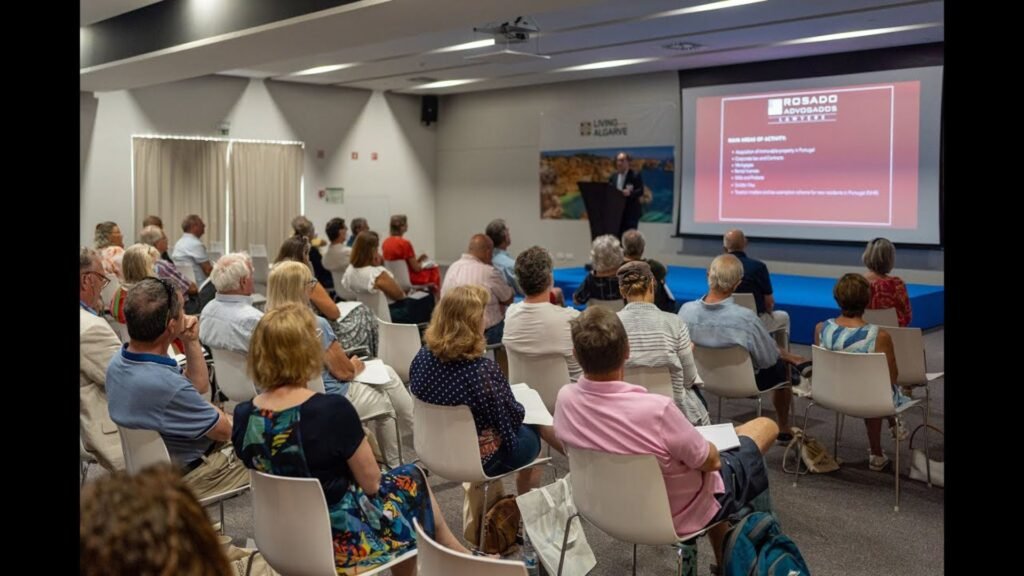Águas do Algarve which is the region’s water company and it has announced an international tender for a new water project. The Pomarão Water Intake Solution aims to improve the Algarve’s water supply. It will take two years and cost 101 million euros to finish the project.
This big plan shows how important it is to solve the water problem quickly in one of Portugal’s most likely to experience drought areas. Officials in the area think this is a big step toward making sure the Algarve has a bright future.
Read More About: Toll Road Payments In Portugal Will Have Negative Impact For Public Treasury
International Public Tender To Boost Algarve Water Supply

The Ministry of Environment and Energy said that the project is divided into three parts. The work will take about 460 working days. The project’s main goal is to secure water for human consumption in the Algarve.
The government hopes to streamline the process and minimize delays by splitting the work into manageable sections. The initiative underscores the importance of collaboration among various stakeholders to meet tight deadlines.
Tackle Water Shortages
Droughts have been causing severe water shortages in the Algarve. The Plan for Recovery and Resilience (PRR) includes the Pomarão project. This national plan is funded by the European Union and supports sustainable projects across Portugal.
Drought conditions have worsened in recent years and putting immense pressure on water resources. To solve these problems, we need new ideas that balance short term needs with long term survival.
Minister for the Environment and Energy Maria da Graça Carvalho said that the project is vital. It will increase the region’s water supply by 30 cubic hectometres (hm³) per year.
She said:
This is an investment aimed exclusively at meeting the needs of water for human consumption,
The minister added that this increase in capacity would significantly improve the region’s ability to withstand dry periods. She emphasized the importance of continued investment in water infrastructure to meet future challenges.
The minister explained that project budget was increased from €72.8 million to €109 million. The new amount covers construction and additional studies.
Carvalho said:
We agreed that, given the great strategic importance of this work and the manifest insufficiency of the initially projected values concerning the objectives that were intended to be achieved, this increase in funds was justified to say that a project that will have a very positive impact on water availability in the Algarve will be carried out
She highlighted that the additional funding will also support environmental assessments to ensure minimal disruption to ecosystems.
International Cooperation With Spain
The project relies on an agreement with Spain under the Albufeira Convention. This treaty manages shared water resources between the two countries. The agreement allows both nations to share water from the Guadiana River equally.
It also ensures ecological protection for the river. The treaty role in facilitating this project highlights the importance of cross border collaboration in addressing regional challenges.
Spanish officials have also expressed their support for the project, recognizing its potential benefits for both nations. Cooperation between Portugal and Spain is seen as a model for how neighboring countries can work together to solve shared problems.
The agreement underscores the need for diplomatic efforts to address resource management issues effectively.
Pomarão Project
The Pomarão project will extract water from the Guadiana River near the village of Mesquita. This water will then travel through a pipeline to the Odeleite reservoir in Castro Marim.
The aim is to reduce water scarcity while minimizing environmental damage. Engineers have carefully designed the pipeline route to avoid sensitive areas and protect local habitats.
The government says the project will be completed in about two years. It is one of the main measures to improve water access for Algarve residents.
In addition to helping local communities this project will boost the income of the area by making farms more productive and creating jobs. Officials hope that these benefits will be greater than the costs and problems that come up at first.
Other Water Projects
The government has also announced other projects to fight drought in the Algarve. One of them is the construction of a desalination plant. This project will also cost more than €100 million. Additionally, efforts are being made to reduce water waste in cities.
Minister Carvalho will visit Faro on Sunday to officially launch the Pomarão project. She will also sign agreements to improve water access in local communities like Mesquita and Espírito Santo. The minister’s visit underscores the government commitment to address water challenges and engage with affected communities directly.
Controversy And Legal Challenges
The Pomarão project has also faced opposition. Environmental groups and local residents have raised concerns about its impact. They say the project could harm the Guadiana River’s ecosystem and local communities.
Critics argue that alternative solutions such as better water conservation practices,should be explored first. Some lawsuits have been filed against the project. Critics argue that extracting water from the river will disrupt habitats and affect biodiversity.
Similar concerns have been raised about the planned desalination plant. Environmentalists warn that large-scale projects often have unforeseen consequences which emphasize the need for thorough assessments and public consultations.
Pomarão is a small village in Mértola municipality which is central to this project. Its location near the Guadiana River makes it key for water extraction. It also highlights the need to balance development and environmental protection.
Local residents have mixed feelings. Some are supporting water project for their potential benefits and others fear its ecological impact.
Government defends the project and says it is crucial for the Algarve’s future. Officials argue that reliable water supply is essential for the region’s economy which depends on tourism and agriculture. They also point to the project’s potential to improve public health and sanitation in water-stressed areas.
The government will need to address the concerns of environmentalists and local communities. Officials have promised to hold regular meetings to update stakeholders and address their concerns.
